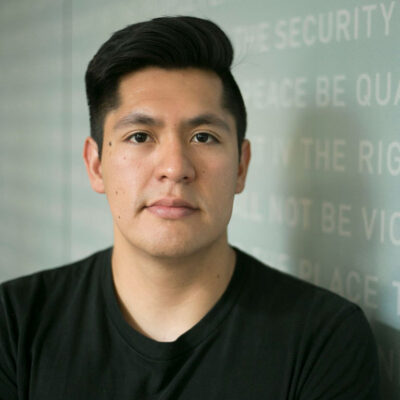Three years ago, a San Bernardino County grand jury found that Taser-related deaths “are not uncommon” in the county, and that the “vast majority” of deaths occurred when a person was shocked more than once. The grand jury cited three cases where men died after being shot multiple times with Tasers, including a Lake Arrowhead man who was shot 16 times.
The county sheriff’s department said it would make changes, but Taser-related deaths continued. A year ago, a man died in custody after sheriff’s department deputies reportedly Tased him more than 20 times. In response, the ACLU of Southern California (ACLU SoCal) asked the sheriff’s department to publicly disclose its use-of-force and Taser policies and records. But the department wouldn’t release records showing what changes, if any, it has made as a result of the grand jury’s findings. So ACLU SoCal Foundation sued to force release of the records. That suit is a direct result of ACLU SoCal being on the ground in San Bernardino where it opened its Inland Empire (IE) office covering Riverside and San Bernardino counties last summer.
By establishing an office in the IE, ACLU SoCal became a tangible presence offering resources and support to communities and organizations in a region where civil rights are, at times, under siege, and civil liberties are often more honored in the breach than in the observance. The issues have always been there: high suspension rates of students of color, voter disenfranchisement, separation of immigrant families due to deportations, constant police violence on communities of color. But those intrusions on civil liberties too often had been routinely ignored or dismissed.
Change is now on the horizon. The expertise and resources ACLU SoCal brings to the area is invaluable for civil liberties advocates. Litigation is one of the most powerful weapons in the organization’s arsenal, and it is coupled with policy advocacy and community engagement experts. Those elements provide a multi-dimensional approach to issues such as immigrant rights, police practices, education equity, voting rights, and criminal justice.
Having an office in the IE enables ACLU SoCal to immediately respond to civil rights violations. When the Riverside School District banned the bestselling novel “The Fault in Our Stars” from middle school libraries, and the Rancho Cucamonga School District banned all John Updike books from its libraries, ACLU SoCal wrote letters advising the districts that their actions violated the First Amendment. The districts took notice and reversed their decisions, returning those titles to the bookshelves.
The ACLU also responded when a San Bernardino charter school expelled a student for bringing a shock toy to school—an expulsion imposed without a required hearing and with a notice in English to his parents who only spoke Spanish. As a result of ACLU SoCal’s involvement, the school expunged the expulsion and allowed the student to reenroll.
ACLU SoCal’s presence in the IE was also instrumental in advancing the rights of transgender inmates in Riverside County jails. In response to an ACLU letter, Riverside County enacted policies to ensure that transgender inmates receive medically appropriate hormone treatment as well as access to educational and rehabilitation programs.
The IE office also was instrumental in getting the Barstow Police Department to reexamine its training for officers on when they could demand to see identification. In addition to settling a lawsuit challenging Barstow’s unlawful practices, the ACLU SoCal helped to publicize an incident where a Barstow officer handcuffed and wrestled to the ground a woman who was eight months pregnant. She had refused to show identification to an officer in an incident captured on his body camera. The woman was charged with resisting arrest, but a judge later dismissed those charges, and she is pursuing civil damages.
In California, unlike some other states, officers cannot require a person to provide ID for no reason.
The ACLU’s Inland Empire office has just completed its first full year of operation, and it has already succeeded in changing practices and addressing systemic problems. It has been a busy year, a rewarding year, a year of successes, a year of promise. And as full as this first year has been, staffers in the IE office know they are just getting started.
Luis Nolasco is a community engagement and policy advocate at the ACLU of Southern California.

